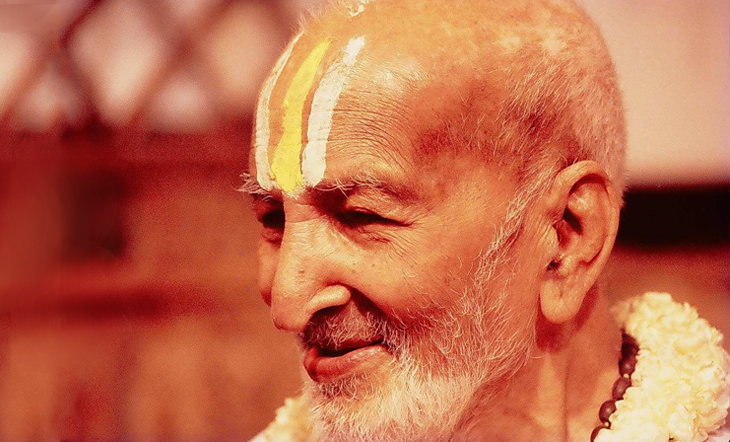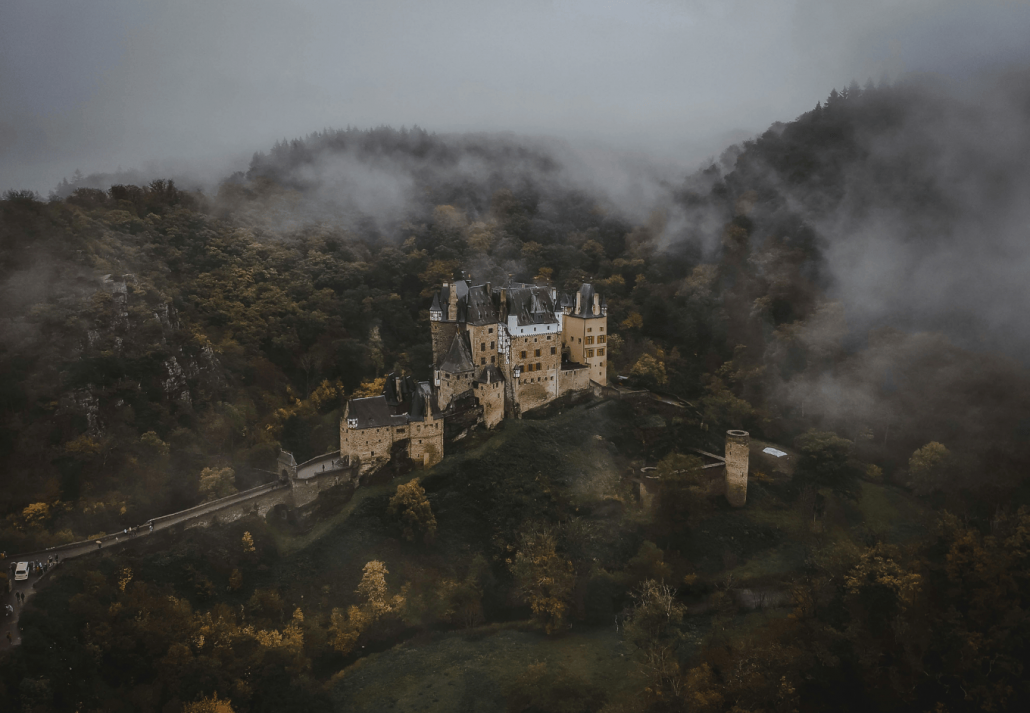Annual Guru Rinpoche Anniversary Day! HAPPY GURU RINPOCHE ANNIVERSARY and DAY — How and When to Celebrate
Today (July 9, 2022) is the annual Guru Rinpoche anniversary. The Birth Anniversary of Guru Rinpoche is a public holiday in some countries, observed on the tenth day of the sixth lunar month, which falls on July 9 this...

Today (July 9, 2022) is the annual Guru Rinpoche anniversary. The Birth Anniversary of Guru Rinpoche is a public holiday in some countries, observed on the tenth day of the sixth lunar month, which falls on July 9 this year. This day is a celebration of his birth in a lotus. It is also, on the lunar calendar, the monthly (recurring) Guru Rinpoche Day!
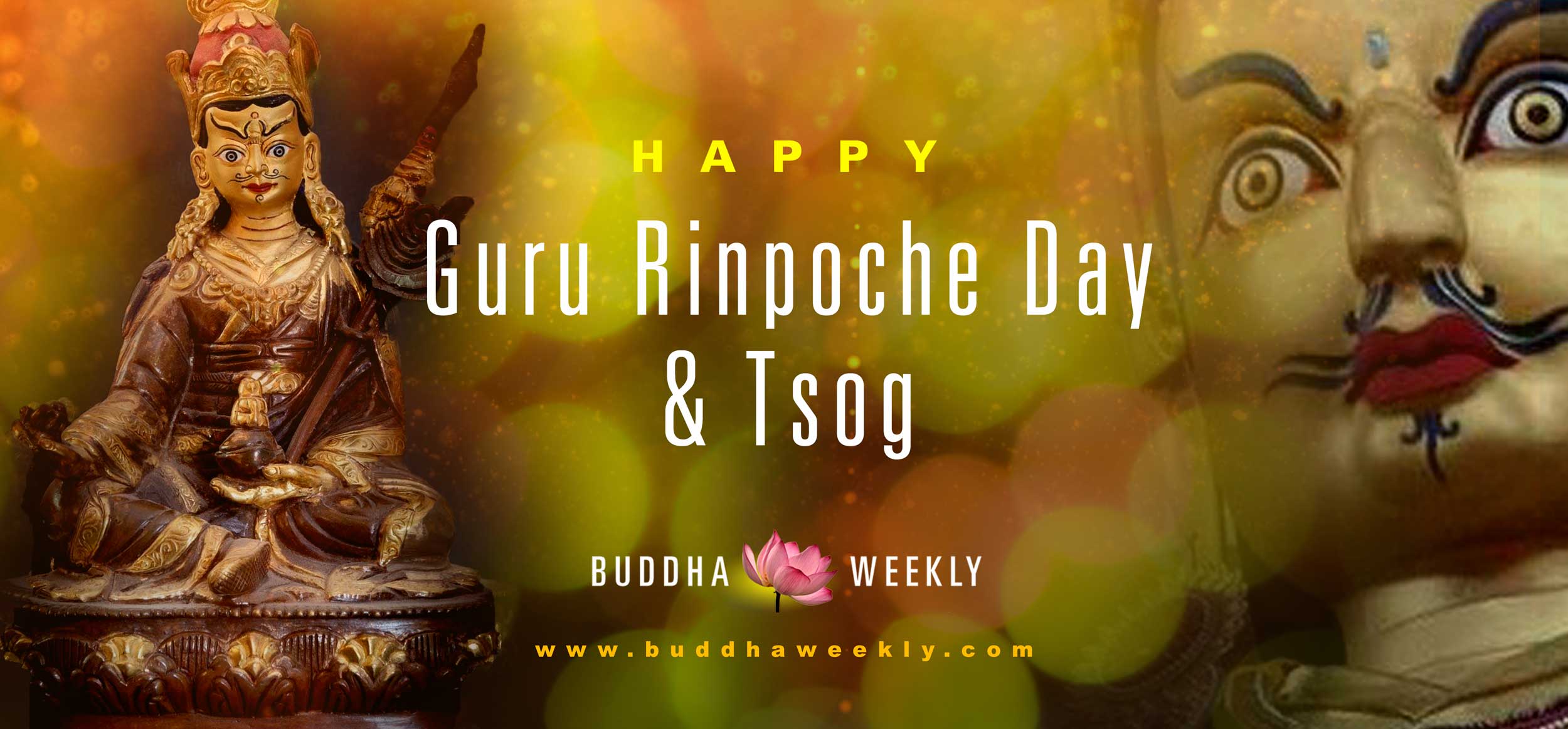 HAPPY ANNUAL GURU RINPOCHE Day and Tsog.
HAPPY ANNUAL GURU RINPOCHE Day and Tsog.
According to National Today:
“Believers agree that he was born on the tenth day of the sixth lunar moon. However, the specific year of his birth has been lost to history. However, his birth took place during the eighth century, and it is generally acknowledged that it occurred on that day.”
Happy ANNUAL Guru Rinpoche Anniversary
Happy Guru Rinpoche Anniversary Birthday and Monthly Padmasambhava Day. Each month, we also celebrate and honor with Pujas and other celebrations — and Tsok or Tsog offerings — the great Lotus Born Guru Rinpoche. [See section below “Guru Rinpoche Tsok Days.”]
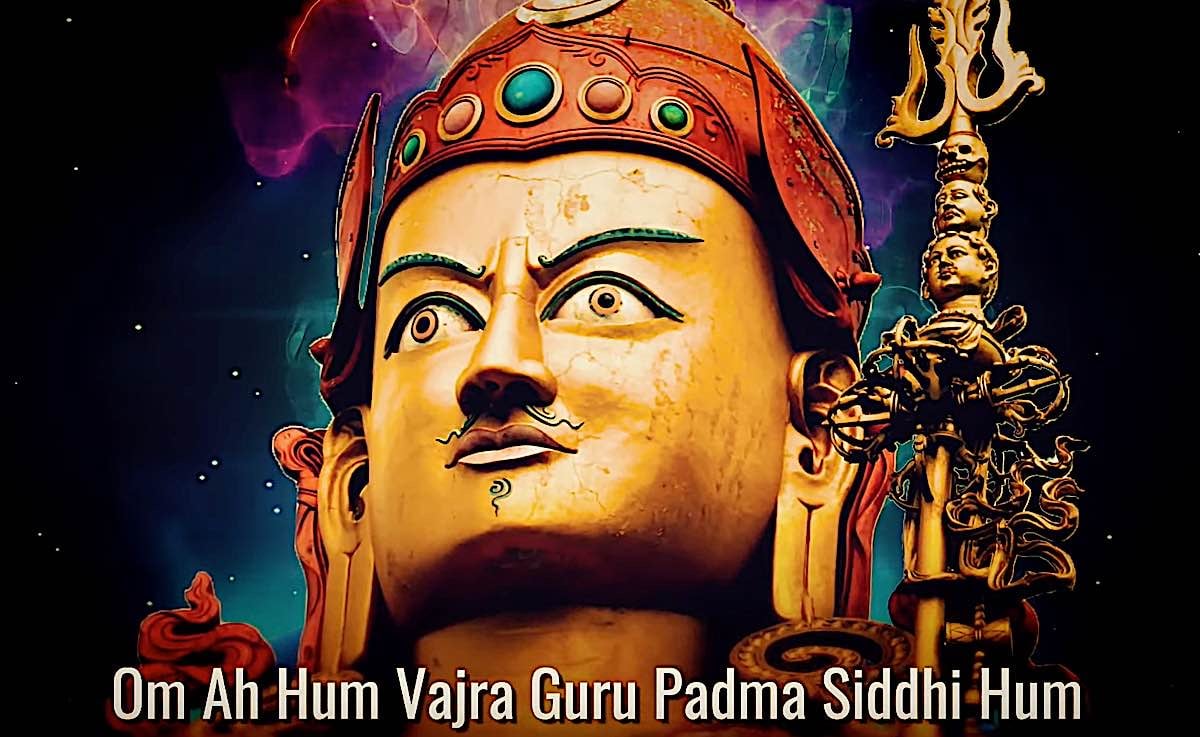 From Buddha Weekly’s popular Guru Rinpoche mantra video, embedded below.
From Buddha Weekly’s popular Guru Rinpoche mantra video, embedded below.
The next few annual Guru Rinpoche Anniversary Days are:
Anniversary of Guru Rinpoche dates
| 2022 | July 9 | Saturday |
| 2023 | June 28 | Wednesday |
| 2024 | June 16 | Sunday |
| 2025 | July 5 | Saturday |
| 2026 | June 24 | Wednesday |
Monthly Guru Rinpoche Days are below.
Guru Rinpoche’s life embodied miracles
Padmasambhava’s life was a living embodiment of the miraculous. Nothing is impossible to the fully Enlightened and marvelous Guru Rinpoche — and everything about his amazing life is a wonder. Just as Shakyamuni Buddha, the first Buddha of our age, demonstrated extraordinary phenomena, Padmasambhava personified them. Why does an Enlightened Buddha display magical feats? As “Upaya” or skillful means, or upaya-kaushalya meaning “skill in means.” In simplest terms, upaya is any activity that helps others realize enlightenment.
 Guru Rinpoche Timeline
Guru Rinpoche Timeline
The Lotus Born
Historically, Guru Rinpoche turned the final wheel of Dharma, popularizing the powerful methods of Buddhist Tantra. Traditionally, he is “Lotus Born” in Oddiyana, by tradition “consciously incarnated as an eight-year-old child appearing in a lotus blossom floating in Lake Dhanakosha, in the kingdom of Oddiyana.” He is the Lotus Born — born fully Enlightened.
Historically, Guru Rinpoche is acknowledged by scholars.[1]
“Scholars agree that Guru Rinpoche was a real person, that he came from Uddiyana, a kingdom possibly located around present-day Swat in Pakistan, and that he arrived in Tibet some time around 760.”
One of the best ways to honor and celebrate Guru Rinpoche Day is with his mantra. Enjoy this beautiful Sanskrit version of the Mantra:
Recommended by National Today:
Anniversary of Guru Rinpoche Activities
Attend religious observances
The anniversary of his birth is commemorated with holy religious observances held all around Bhutan in the nation’s Buddhist monasteries. Attend one if you can and immerse yourself in a different culture.
Learn more about Buddhism
If you’ve always been interested in Buddhism, now is a good time to learn more about it. There is a wealth of information available on the Internet about this religion.
Study about Rinpoche
You can study the life of Rinpoche. You can share your findings of the great Buddhist master and encourage people to learn.
Buddha Shakyamuni predicted Guru Padmasambhava
Buddha Shakyamuni predicted Padmasambhava’s coming and activities in 19 Sutras and Tantras, stating he would be an emanation of Amitaba and Avaloketishvara.
“Buddha Shakyamuni actually predicted Guru Padmasambhava’s appearance in several different sutras and tantras contain clear predictions of his coming and activities.In the Mahaparinirvana Sutra, Buddha Shakyamuni announced his parinirvana to the students who were with him at the time. Many of them, particularly Ananda, the Buddha’s cousin and personal attendant, were quite upset upon hearing this. So Buddha turned to Ananda and told him not to worry. “…After my parinirvana, a remarkable being with the name Padmasambhava will appear in the center of a lotus and reveal the highest teaching concerning the ultimate state of the true nature, bringing great benefit to all sentient beings.’” [5]
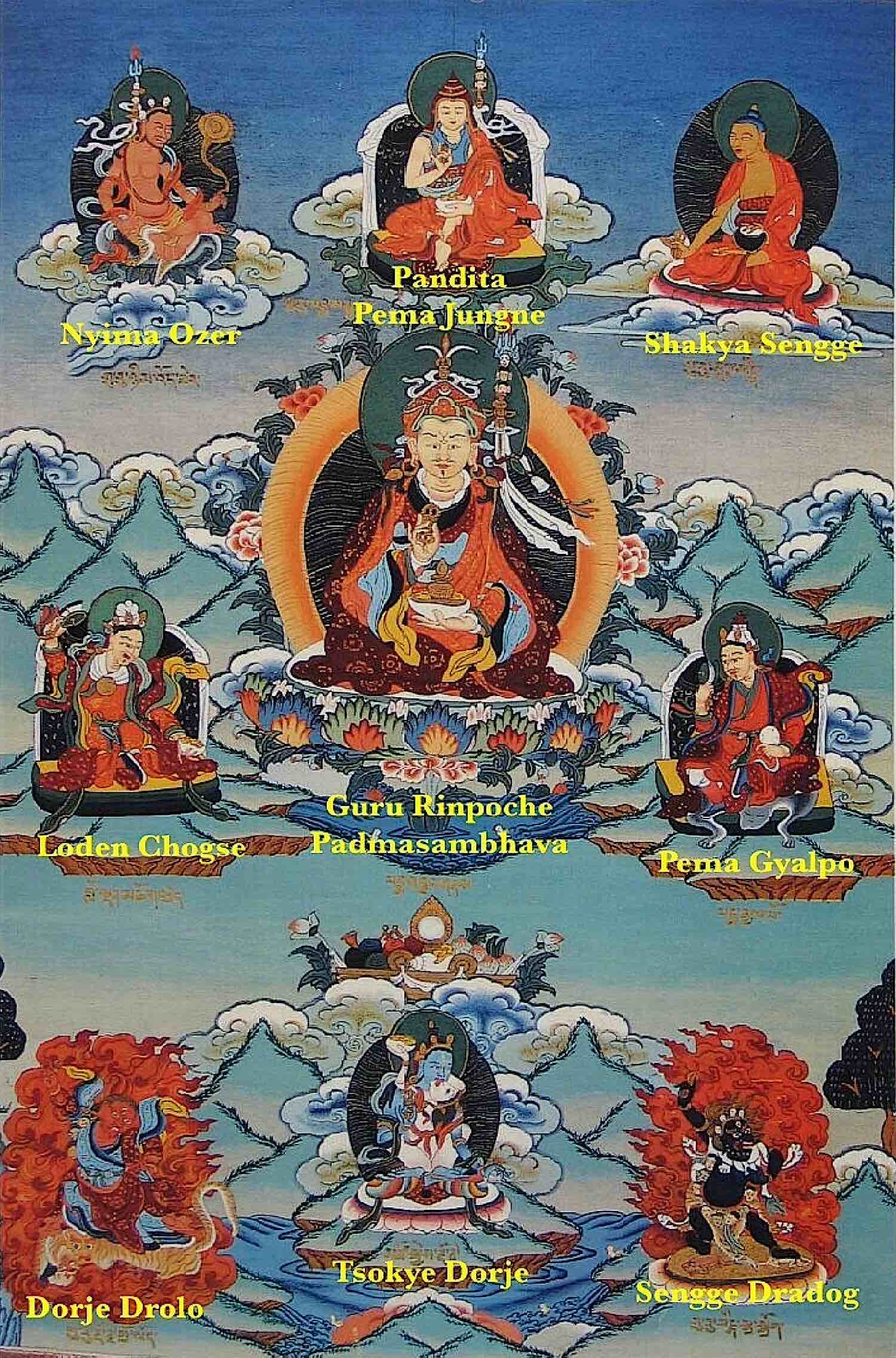 The Eight Manifestations of Guru Rinpoche with English annotations.
The Eight Manifestations of Guru Rinpoche with English annotations.
Eight Manifestations of Guru Rinpoche
Padmasambhava’s best known manifestation is probably Padma Gyalpo (Peme Gyalpo), the Lotus King, as described in the Wangdu prayer as the Lotus Lord having “all of samsara and nirvana beneath your control.” [4] However, even his life and manifestations provided lessons in Quantum Mechanics and the “illusory nature” of our relative reality. In the film Guru Padmasambhava – Searching for Lotus born Master – Part I, the filmmaker explores a fascinating concept: that each of the eight key manifestations of Guru Rinpoche represent different energies in Quantum Physics.
The Lotus Born’s life can be viewed as a perfect exemplar of Quantum Mechanics, or as a life of miracles. He displayed countless miracles and powers, including eight important manifestations at different stages of his wondrous life:
Guru Tsokyé Dorje, ‘Lake-born Vajra’ (birth) Guru Shakya Sengé, ‘Lion of the Shakyas’ (ordination) Guru Nyima Özer, ‘Rays of the Sun’ (subjugating demonic spirits) Guru Padmasambhava, ‘Lotus-born’ (establishing Buddhism in Tibet); Guru Pema Jungné (Wyl. gu ru pad+ma ‘byung gnas) Guru Loden Choksé ‘Wise Seeker of the Sublime’ (mastery of the teachings) Guru Pema Gyalpo ‘The Lotus King’ (kingship) Guru Sengé Dradrok ‘The Lion’s Roar’ (subjugation of non-buddhists) Guru Dorje Drolö ‘Wild Wrathful Vajra’ (concealing terma, binding spirits under oath)These are not separate Buddhas. Padmasambhava, a fully Enlightened Buddha, could manifest any characteristics suitable to the needs of the world and his followers.
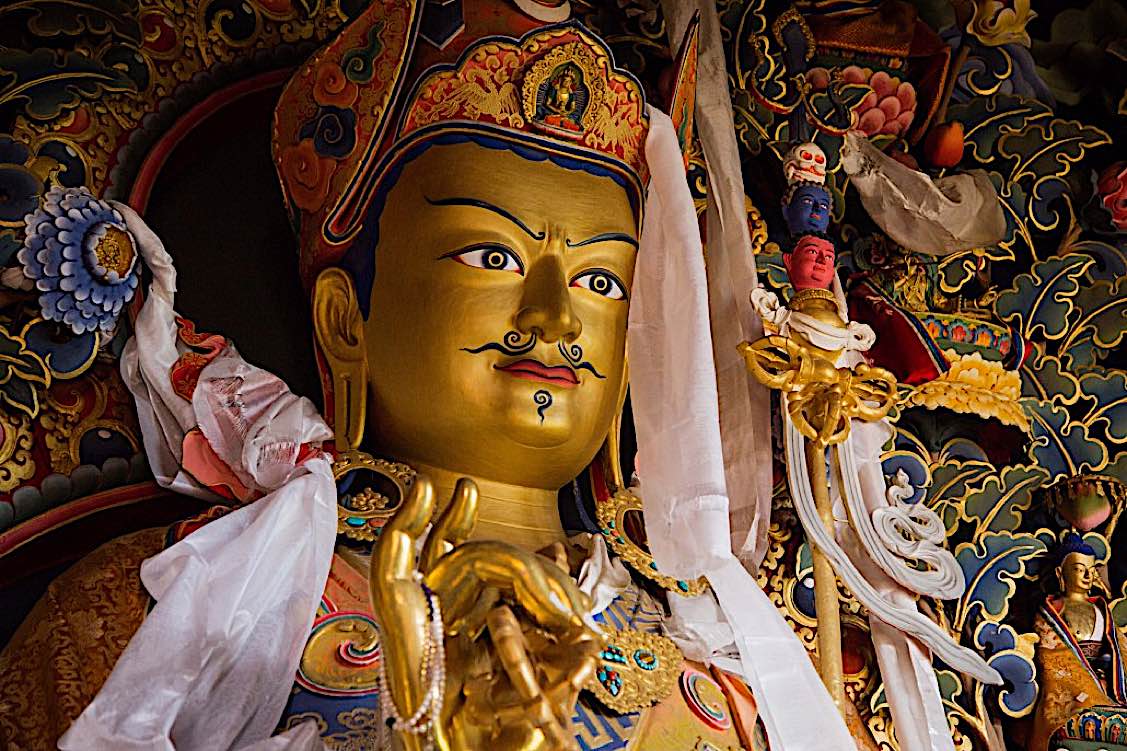 The great Guru Padmasambhava.
The great Guru Padmasambhava.
12-Syllable Mantra of Guru Rinpoche
Guru Rinpoche’s mantra is a supreme and profound meditation. It’s benefits are vast, benefiting all beings.
The twelve syllable mantra of Guru Padmasambhava: (in Sanskrit):
oṃ āḥ hūṃ vajra guru padma siddhi hūṃ
Tibetan pronunciation:
om ah hung benza guru péma siddhi hung
Video with 1000 repetitions of mantra chanted with screen visualization images (over 1.5 hours of meditative mantras):
Chanting in melody versus for numbers
In a precious teaching, H.E. Garchen Rinpoche explained that most mantras have melodies. In a teaching on the Guru Rinpoche mantra (embedded below), he explained:
“Guru Rinpoche taught about the benefits of chanting the mantra in melody. It is more beneficial to chant the mantra slowly in melody than to recite many mantras quickly. Reciting mantras purely makes a hundred-fold difference. Reciting them in melody makes a hundred-thousand-fold difference. Thus, chanting it in melody multiples the power of mantra.
“And why is its power multiplied? It is because to the extent that you focus on the meaning of each word in the mantra that much greater will be the blessing that enters your mind stream.
“Some people think about the numbers of mantras accumulated and of course, there is benefit from accumulating a number of mantras, but it is said ‘The recitation should be neither too fast nor too slow, neither too strong nor too soft.’ The elements of each syllable should be pronounced without deterioration. Most important for mantra or any other recitation is that the elements of each syllable are pronounced without deterioration.
“This is important. Pronouncing without deterioration has an outer, inner and secret qualities.”
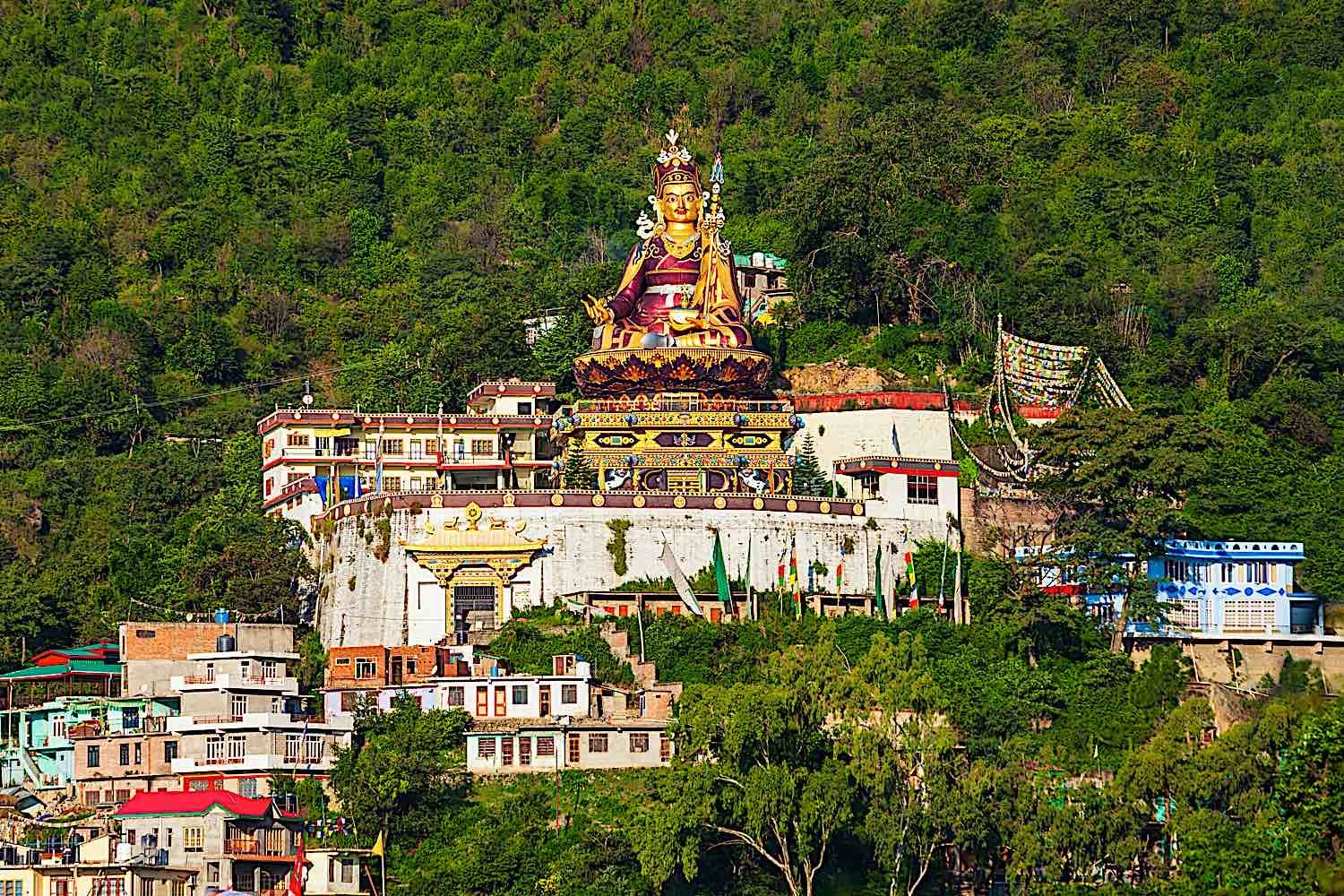 Statue of Guru Padmasambhava in Rewalsar India. (Photo Saiko3p.)
Statue of Guru Padmasambhava in Rewalsar India. (Photo Saiko3p.)
The meaning of the mantra
Guru Rinpoche himself explained his essence mantra to Yeshe Tsogyal [6]:
“O daughter of good family, the Vajra Guru mantra is not just my single essence mantra, it is the very essence or life force of all the deities of the four classes of tantra, of all the nine yanas, and all of the 84,000 collections of dharma teachings. The essence of all of the buddhas of the three times, all of the gurus, yidams, dakas and dakinis, dharma protectors etc., the essence of all of these is contained and is complete within this mantra. How, you may ask, does this work? What is the reason for all these being complete with this mantra? Listen well and hold this in mind. Read it again and again. Write it out for the benefit of sentient beings, and teach it or demonstrate it to beings in the future.”
Garchen Rinpoche’s excellent 34 minute teaching on the Guru Rinpoche mantra:
The essence mantras multiple aspects
The tightest synopsis of the mantra essence meaning as it relates to the five Buddha Families, taken from a teaching by Lama Tarchin Rinpoche: [6]
OM AH HUM (or HUNG) are the sublime essence of the principles of enlightened body, speech, and mind VAJRA or BENZA is the sublime essence of the indestructible family GURU is the sublime essence of the jewel family PADMA or PEMA is the sublime essence of the lotus family SIDDHI is the sublime essence of the activity family HUM or HUNG is the sublime essence of the transcendent family.From the point of view of the aspects or bodies of a Buddha manifestation
OM is the perfect splendor and richness of sambhoghakaya, the manifest body of splendor AH is the total unchanging perfection of dharmakaya, the manifest body of absolute reality HUNG perfects the presence of Guru Padmasambhava as the nirmanakaya, the manifest body of emanation VAJRA perfects all the heruka deities of the mandalas GURU refers to the root and transmission gurus and the holders of intrinsic awareness PEMA perfects the assembly of dakas and dakinis SIDDHI is the life force of all the wealth deities and the guardians of the treasure teachings HUNG is the life force of the dharmapalas, the protective deities.From the point of view of the three classes of tantra
OM AH HUNG are the life force of the three classes of tantra VAJRA is the life force of monastic discipline and the sutra class of teachings GURU is the life force of abhidharma and kriya (action) yoga, the first level of tantra PEMA is the life force of the charya (conduct) tantra, the second class of tantra, and yoga (joining) tantra, the third class of tantra SIDDHI is the life force of the mahayoga and anuyoga classes of teachings HUNG is the life force of the ati yoga, the Natural Great Perfection (Dzogchen)From the point of view of obscuration’s and poison remedies
OM AH HUNG purify obscurations arising from the three mental poisons — desire-attachment, aversion, and ignorance VAJRA purifies obscurations which stem from anger GURU purifies obscurations which stem from pride PEMA purifies obscurations which stem from desire and attachment SIDDHI purifies obscurations which stem from envy and jealousy HUNG in a general way purifies obscurat ions which stem from all emotional afflictionsFrom the point of view of realizations
Through OM AH HUNG one attains the three kayas Through VAJRA one realizes mirror -like pristine awareness Through GURU one realizes the pristine awareness of equalness Through PEMA one realizes the pristine awareness of discernment Through SIDDHI one realizes the all-accomplishing pristine awareness Through HUNG one realizes the pristine awareness of basic space Through OM AH HUNG gods, demons and humans are subdued Through VAJRA one gains power over the malevolent forces of certain gods and demons Through GURU one gains control over the malevolent forces of the Lord of Death and the cannibal demons Through PEMA one gains control over the malevolent influences of the water and wind elements Through SIDDHI one gains control over the malevolent influences of non-human forces and spirits bringing harm and exerting negative control over one‘s life Through HUNG one gains control of the malevolent influences of planetary configurations and earth spiritsFrom the point of view of the activities and accomplishments
OM AH HUNG accomplishes the six spiritual virtues VAJRA accomplishes pacifying activity GURU accomplishes enriching activity PEMA accomplishes magnetizing activity SIDDHI accomplishes enlightened activity in general HUNG accomplishes wrathful enlightened activity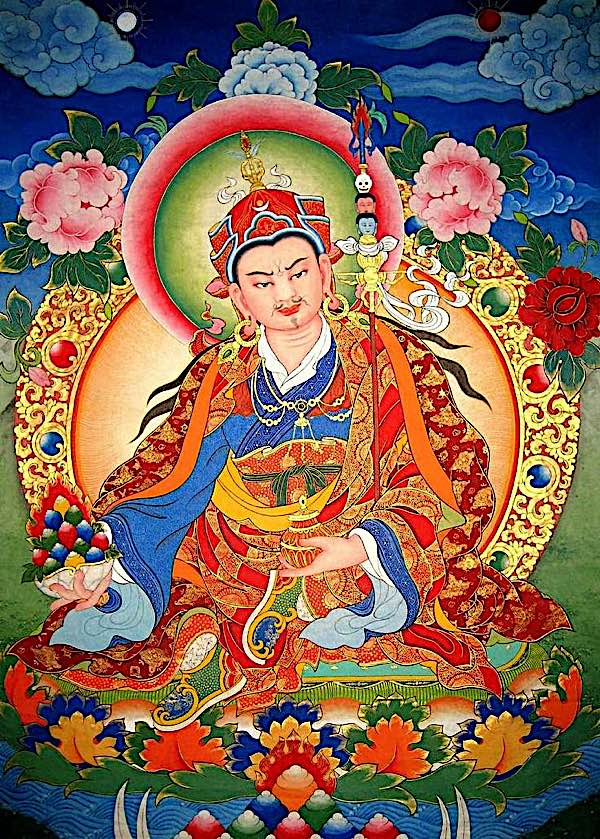
How to recite according to Guru Rinpoche
“One recitation of the Vajra Guru mantra will grant a physical body and entry into this world. Any sentient being who sees, hears, or thinks of the mantra will definitely be established among the ranks of the male and female Awareness Holders. The infallible Vajra Guru mantra is the word of truth; if what you wish for does not happen as I have promised, I, Padma, have deceived sentient beings—absurd! I have not deceived you—it will happen just as I’ve promised.
“If you are unable to recite the mantra, use it to adorn the tops of victory banners and prayer flags; there is no doubt that sentient beings touched by the same wind will be liberated. Otherwise, carve it on hillsides, trees, and stones; after they are consecrated, anyone who merely passes by and sees them will be purified of illness, spirit possession, and obscurations. Spirits and demons dwelling in the area will offer wealth and riches. Write it in gold on pieces of indigo paper and hang them up; demons, obstacle-makers, and evil spirits will be unable to harm you. If you place the mantra upon a corpse immediately upon death and do not remove it, during cremation rainbow colors will flash out and the consciousness will definitely be transferred to the Blissful Realm of Amitābha. The benefits of writing, reading and reciting the Vajra Guru mantra are immeasurable. For the benefit of sentient beings in the future, write this down and conceal it. May it meet with those of fortune and merit. Samaya Gya Gya Gya” [6]
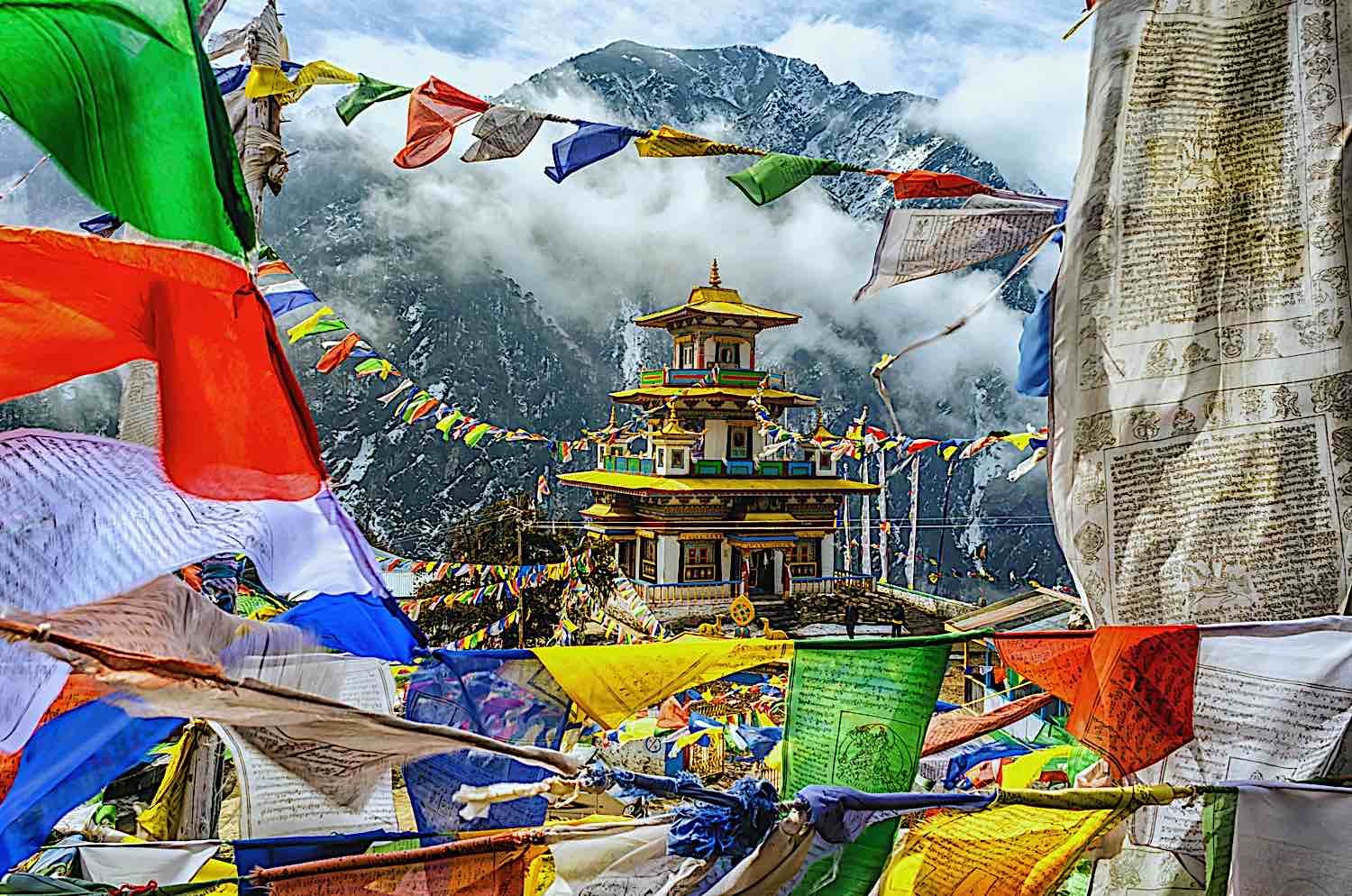 Prayer flags with mantras at a temple to Padmasambhava in Tawang district.
Prayer flags with mantras at a temple to Padmasambhava in Tawang district.
Guru Rinpoche Tsok (Tsog) Days
“The 10th day of the lunar calendar is connected with Guru Rinpoche (Padmasambhava) who is revered as the Second Buddha.” [1]
In addition, we celebrate the important annual celebration on the anniversary of Guru Rinpoche Padmasambhava. In 2022, this will be celebrated on July 9 (which is also a monthly Tsog day — doubly auspicious!)
Merit for practices on these days is multiplied auspiciously. The converted dates in the 2022 western calendar are:
January 12, 2022 February 11, 2022 March 12, 2022 April 11, 2022 May 11, 2022 June 9, 2022 July 9, 2022 August 7, 2022 September 5, 2022 October 5, 2022 November 3, 2022 December 3, 2022 For other lunar Dharma practice dates in 2022, see>>
 Fransebas
Fransebas 







